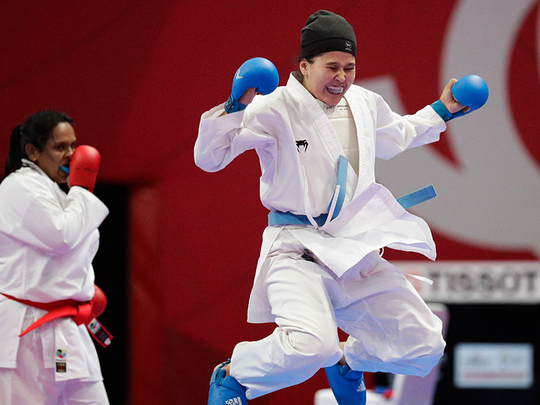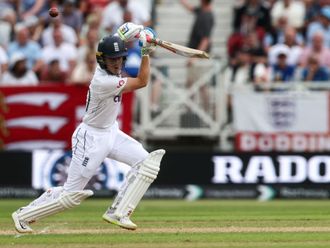
Jakarta: Nargis means flower in Urdu and the 19-year-old from remote northwestern Balochistan area of Quetta near the Pakistan-Afghanistan border, blossomed in such a way that not just her nation but Asia as a whole sat back and took notice.
She overpowered Nepal’s Rita Karki in women’s +68kg Karate to win bronze at the 18th Asian Games and became the first Pakistani woman to clinch an individual medal in the history of the event.
For Nargis, who goes by just one name, things have still not sunk in as her accomplishment is way beyond the imagination of girls like her who are not even allowed to get basic education. Hence, having got that window of opportunity through the medium of sport, she wanted to make it count.
“I stepped into my room in the Asian Games Village and immediately wrote on a small piece of paper — Asian Games medallist — and kept it on the table. I want to tell you I badly wanted to win that medal for all the girls out there in Pakistan,” said Nargis, who recalls that until recently girls going to school was branded as taboo and so plenty of eyebrows were raised when she took up karate.
“There are still a lot of restrictions in the Balochistan side,” she said. “People still don’t allow their girls to go to school and get educated. So imagine sports, it is impossible to even think for many girls out there. Thankfully, off late in our area there are a lot of girls coming for karate training and we practice six days a week.”
Nargis attributes her success to the support she received from her parents — father Hamid Ullah and mother Kamar Gul.
“You can say it was my father Hamid Ullah who was very adamant that I also do sports with my education,” she said. “It was always his ambition. He use to see a lot of martial arts movies and was very much inspired and wanted me to join karate.”
Nargis, who started karate in 2010 at the age of 11, added: “At that time my teacher Sensei Gulam Ali Hazara was a big name as he was a three-time South Asian Games Gold medallist. So my abbu [father] wanted me to get my training under him and it was the perfect start and I have not looked back after that.
“My relatives were dead against me doing sports. They use to say: ‘What will she will do getting into sports as at the end you have to get married?’
“I wanted to show my relatives that before I get married I make a name of my own. I wanted to put this medal right in front of their face. Wanted to show I can do something.
“The relatives have not called yet but I want to see them first when I land at the airport. I want to see the look on their faces first.”
Nargis, who is keen to go to a university and pursue her education having passed her intermediate exams, recalling the day of her bout said: “My coach gave me a wake-up call at 6am and when I stepped out of my room after getting ready I told myself when I will be entering back in this room, I will be screaming my gut out with happiness. I’m so happy that I managed to do that at the end of the day.”
Nargis is well aware what is coming her way when she returns to a hero’s welcome but she doesn’t want to get carried away and wants to stay grounded.
“I will start training immediately and don’t want to change my focus at all but yes during my spare time, I will definitely try to inspire other girls. Let them know if I can come this far, then all of them also can. Nothing is impossible and the word ‘impossible’ also says ‘I’m possible’,” said Nargis, who plans to frame the medal and keep it at a place where she can see it as soon as she wakes up.
“I want to get inspired seeing that and keep telling myself: ‘You have to change the colour of this bronze medal into gold one day.’”











